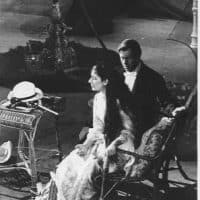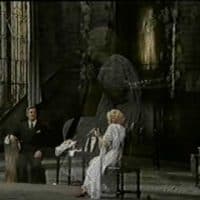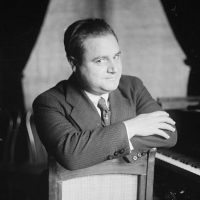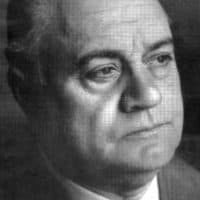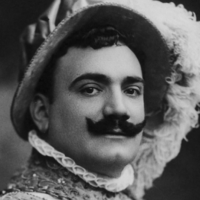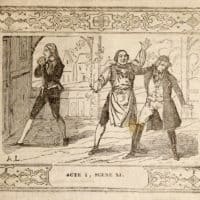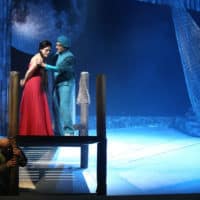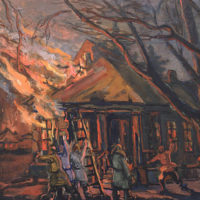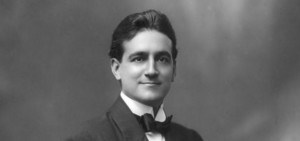
Lázaro looked somewhat like the stereotypical Latin leading man, as popularized in the twenties and thirties. My father says that he befriended Lázaro from the thirties to around 1950, in which year he retired. My father is a tenor manqué who received singing classes in Havana, Cuba, in the thirties and forties from a well-known maestro and orchestra conductor named Arturo Bovi, who was married to a singer named Tina Fanelli. They were an Italian couple who resided and taught in Cuba. They happened to be Lázaro’s best friends and musical colleagues. Whenever Lázaro prepared to tour Latin America, he would prepare his voice with Bovi at the latter’s home in the Vedado residential area of Havana. Since my father was one of Bovi’s students, that is how he met Lázaro.
My father remembers Lázaro as an uncomplicated, gregarious and unassuming person — not a divo but an open, engaging and approachable person. He recalls Lázaro’s voice (correctly or incorrectly) as that of a “lyric tenor,” with a brilliant, ringing voice and a technique that remained “marvelous” throughout the extended “prime” period of his voice. It seems that Lázaro had received little formal training until three years into his singing career. He more than made up for it, however. In Milan, in 1912, he received intensive training. He always prepared well before a series of performances, in fact, he was somewhat of a model in this regard. My father has many cherished anecdotes about Lázaro’s concern for technique and equipment, including one in which he boasted that the “dome of the palate” of his small grandson displayed the “configuration necessary for a great tenor.” He was referring to the arch-like palate that (he believed) was an essential component of the brilliance inherent in the tones of Gigli, Caruso and, of course, of Lázaro himself. In Havana, he was famous for his technical mastery, but he sometimes experienced what in Cuba where called “gallos” (GAH-yoh) or voice breaks upon hitting a high tone. This was towards the end of his career, when he was past his prime. My father says that there was notable example of a gallo when Lázaro sang “Baltasar,” a then new Opera by a Cuban composer at the Teatro Nacional.
Lázaro was born in Barcelona, Spain. To break into the world of Italian opera, he initially appeared in operas under the name Antonio Manuele. What Mascagni admired most about Lázaro was the brilliancy of his tone, according to Lázaro himself. Lázaro admired Mascagni and was particularly grateful to him for choosing to create several roles, but Lázaro did not particularly like Mascagni’s personality. Aside from Il Piccolo Marat, Lázaro created the tenor role in Parisina and in Giordano’s “La Cene delle Beffe.”
My father remembers him still in his prime as a most effective and dynamic Duke of Mantua that he ever saw in that role, and one of the best Rhadameses. Although he was a great favorite of these Italian composers like Mascagni and Giordano, Lázaro’s greatest popularity was in Latin America, where he travelled frequently and to great acclaim. As I said, he always prepared his Latin America tours with Arturo Bovi.
Lázaro died on May 14, 1974. My father seems to remember that Lázaro was born in 1887, because of a conversation in which Lázaro commented that my father was exactly 30 years Lázaro’s junior. My father was born in 1917.
These are the pertinent facts that my father remembers from conversations with his friend Lázaro at Bovi’s home and from attending Lázaro performances. He has many prized anecdotes from their long friendship.
[fancy_box]These recollections were written by Eduardo Baez as they were told to him by his father, Jose E. Baez, who befriended Hipólito Lázaro while performing and giving master classes on Cuba during the thirties and the forties. Undoubtedly, the article is of great worth: José Baez was one of very few alive at the time this article was written who knew the great tenor personally. He passed away on October 19, 2001.
[/fancy_box]